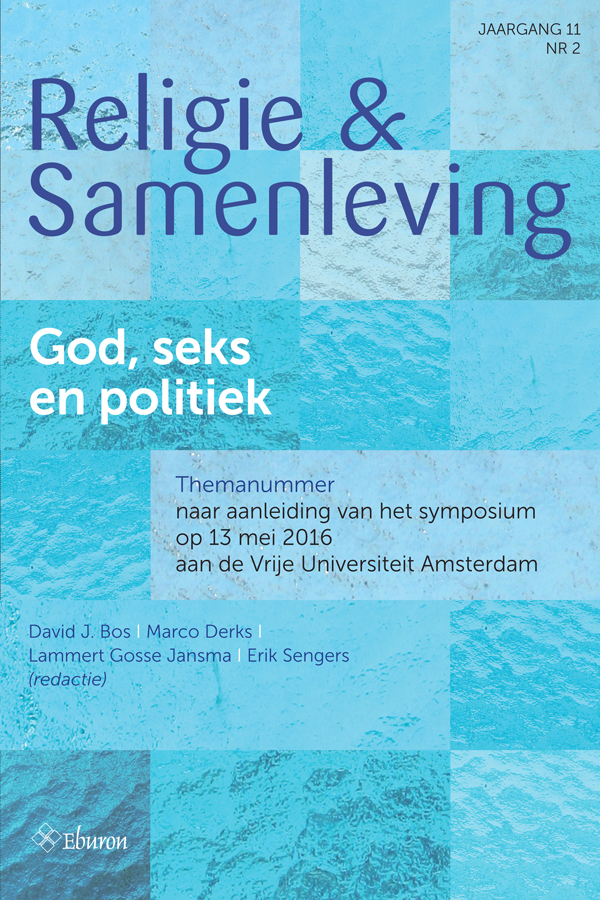Een smet op de mooiste dag van je leven
De controverse van ‘de weigerambtenaar’
DOI:
https://doi.org/10.54195/RS.12207Samenvatting
In 2000-2001, when civil marriage in the Netherlands was opened up to same-sex couples, the Dutch government allowed marriage registrars with conscientious objections to opt out. This exemption became controversial in 2007, when it was re-emphasised by a new government coalition that comprised two faith-based parties. Through critical discourse analysis of printed, online and televised media sources between 2007 and 2014, this article discusses the Dutch public controversy on the weigerambtenaar (lit. ‘refusing civil servant’) alias ‘marriage registrar with conscientious objections’ (viz. against conducting same-sex wedding ceremonies). It shows how the weigerambtenaar became a social problem, how religion and homosexuality were constructed in the public imagination concerning the weigerambtenaar, and how marriage was conceptualized in terms of religion and (homo)sexuality.




